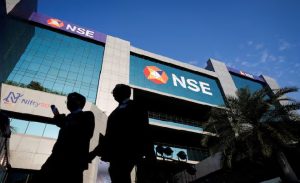12-12-2024
Bureau Report
NEW DELHI: Indian shares were little changed on Wednesday, as investors awaited key U.S and domestic inflation data for cues into the rate trajectories of the two countries.
The NSE Nifty 50, opens new tab added 0.13% to 24,641.8, while the BSE Sensex, opens new tab rose 0.02% to 81,526.14.
 The benchmark Nifty 50 has traded in a narrow range of less than 170 points in the three sessions this week after logging gains in the previous three weeks ended Dec. 6.
The benchmark Nifty 50 has traded in a narrow range of less than 170 points in the three sessions this week after logging gains in the previous three weeks ended Dec. 6.
“The benchmarks have been muted in the last few sessions, reflecting caution ahead of U.S. inflation reading,” said Prashant Tapse, senior vice president of research at Mehta Equities.
The U.S. inflation data will shape the Federal Reserve’s interest rate outlook, which could impact foreign inflows into emerging markets such as India.
Meanwhile, economists expect domestic inflation to have eased in November, a Reuters poll showed. The data is due on Thursday.
Moderation in inflation may allow the Reserve Bank of India to cut interest rates in its next policy meeting in February, amid rising growth concerns, two analysts said. The RBI kept rates unchanged in its policy meeting last week.
Nine of the 13 major sectors rose, but gains were marginal. Banks, opens new tab and state-owned lenders, opens new tab dropped 0.35% and 0.9%, respectively.
The broader, more domestically focused smallcaps, opens new tab rose 0.4% to a record high and midcaps, opens new tab gained 0.3%.
Both indexes advanced for the 14th straight session, their longest in eight months and in a year, respectively.
Sustained inflows from domestic and mutual fund investors into smallcaps and midcaps, driven by the prospect of outsized returns, is driving the rally, said two analysts.
Among individual stocks, non-bank lender Bajaj Finance, opens new tab rose 2.6% after unveiling growth strategy for fiscal 2025-2029.
 D-mart stores operator Avenue Supermarts, opens new tab fell about 3% after Goldman Sachs lowered target price, citing weakness in revenue growth.
D-mart stores operator Avenue Supermarts, opens new tab fell about 3% after Goldman Sachs lowered target price, citing weakness in revenue growth.
Online food delivery platforms Swiggy, opens new tab and Zomato, opens new tab fell 4% and 1.4% on Amazon’s plans to enter Indian quick commerce.
However, the Reserve Bank of India (RBI) kept its key interest rate unchanged on Friday but cut the cash reserve ratio that banks are required to hold for the first time in over four years, effectively easing monetary conditions as economic growth slows.
India’s GDP growth rate fell unexpectedly to 5.4% in the July-September quarter, its slowest pace in seven quarters, while inflation is quickening again and the rupee has fallen to record lows, limiting the RBI’s room to manoeuvre heading into what looks to be a globally turbulent 2025.
To balance the conflicting pressures on the economy, the central bank eased liquidity conditions, while announcing steps to draw more foreign currency deposits, but kept its benchmark policy rate unchanged for now.
The cash reserve ratio (CRR) was cut by 50 basis points to 4%, effective in two tranches on Dec. 14 and Dec. 28. The cut was the first since March 2020.
The move will infuse 1.16 trillion rupees ($13.72 billion) into the banking system.
The benchmark repo rate (INREPO=ECI), opens new tab, however, was left unchanged at 6.50% for an eleventh straight policy meeting, with officials flagging persistent price pressures.
 Pressmediaofindia
Pressmediaofindia




